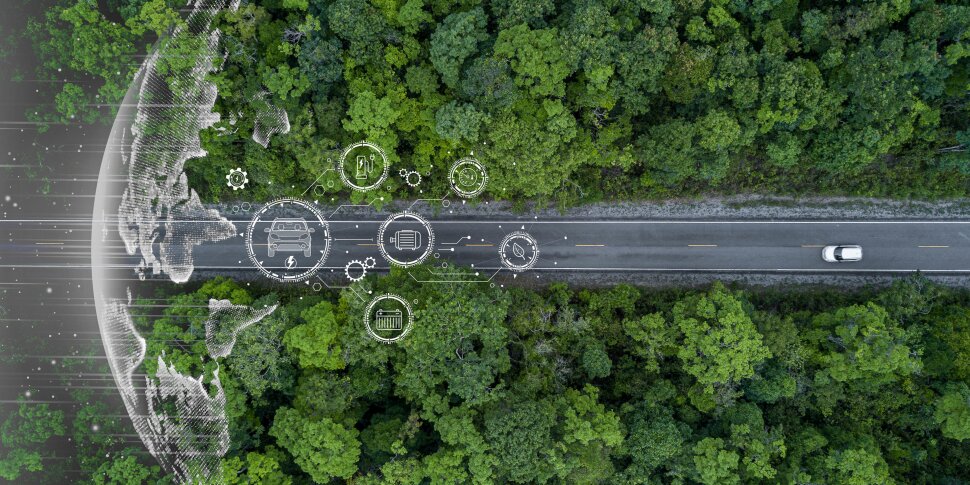Agriculturally based Equivalent Education: Insights on Nonformal Education Human Resources and Program Quality
Downloads
Doi:10.28991/HEF-2022-03-04-04
Full Text:PDF
Downloads
Askling, B., & Foss-Fridlizius, R. (2000). Lifelong Learning and Higher Education: The Swedish case. European Journal of Education, 35(3), 257–269. doi:10.1111/1467-3435.00025.
Coombs, P. H., Prosser, R., & Ahmed, M. (1973). New paths to learning for rural children and youth. International Council for Educational Development, New York, United States.
Darder, A. (2015). Chapter Two: Paulo Freire and the Continuing Struggle to Decolonize Education. Counterpoints, 500, 39-54. Peter Lang AG, Bern, Switzerland.
Rogers, A. (2014). The base of the iceberg: Informal learning and its impact on formal and non-formal learning. Verlag Barbara Budrich, Kornwestheim, Germany. doi:10.3224/84740632.
World Health Organization. (2010). Community-based rehabilitation: CBR guidelines. World Health Organization (WHO), Geneva, Switzerland.
Sudjana, D. (2000). Learning Strategies in Out-of-School Education. Nusantara Press, Bandung, Indonesia.
Porreca, Z. (2020). Environmental sustainability and human capital development. Consilience, (22), 48-57.
Baudron, F., Schultner, J., Duriaux, J. Y., Gergel, S. E., & Sunderland, T. (2019). Agriculturally productive yet biodiverse: human benefits and conservation values along a forest-agriculture gradient in Southern Ethiopia. Landscape ecology, 34, 341-356. doi:10.1080/03067319.2022.2064750.
Duff, C. (2010). Towards a developmental ethology: Exploring deleuze's contribution to the study of health and human development. Health, 14(6), 619–634. doi:10.1177/1363459309360793.
Wallenborn, M. (2010). Vocational Education and training and human capital development: current practice and future options. European Journal of Education, 45(2), 181–198. doi:10.1111/j.1465-3435.2010.01424.x.
Government Regulation of the Republic of Indonesia. (2005). Regulation of the Government of the Republic of Indonesia, Concerning National Education Standards. Departemen Pendidikan Nasional, Jakarta, Indonesia.
Ministry of Education, Culture, Research, and Technology (1991). Government Regulation No. 73, Concerning the Purpose of Out-of-School Education. Departemen Pendidikan Nasional, Jakarta, Indonesia. (In Indonesian).
Sudjana, D. (1993). Participatory Learning Methods and Techniques in Out-of-School Education. Nusantara Press, Bandung, Indonesia. (In Indonesian).
Shriar, A. J. (2007). In search of sustainable land use and food security in the Arid Hillside regions of Central America: Putting the horse before the cart. Human Ecology, 35(3), 275–287. doi:10.1007/s10745-006-9088-z.
Rivera, W. M., & Pickens, M. W. (1999). China's Agricultural Education System: The Need for Greater Linkages to Research, Extension and Farmers. American Journal of Chinese Studies, 6(2), 185–222.
Klerkx, L. (2020). Advisory services and transformation, plurality and disruption of agriculture and food systems: towards a new research agenda for agricultural education and extension studies. The Journal of Agricultural Education and Extension, 26(2), 131-140. doi:10.1080/1389224X.2020.1738046.
Sudjana, D. (2006). Education Program Evaluation (For Non-Formal Education and Human Resource Development). Falah Production, Bandung, Indonesia. (In Indonesian).
IE&CAL. (2022). Education System in Indonesia: The National Education System. Indonesian Education and Culture Attaché in London (IE&CAL), The Education and Culture Attaché, Embassy of the Republic Indonesian in London, London, United Kingdom. Available online: https://atdikbudlondon.wordpress.com/general/education-in-indonesia-and-uk/education-system-in-indonesia/ (accessed on April 2022).
Karim, S. A. (2021). Mapping the Problems of Indonesia's Education System: Lessons Learned from Finland. Tell: Teaching of English Language and Literature Journal, 9(2), 86. doi:10.30651/tell.v9i2.9368.
Sang, A. K., Muthaa, G. M., & Mbugua, Z. K. (2012). Challenges Facing Technical Training in Kenya. Creative Education, 03(01), 109–113. doi:10.4236/ce.2012.31018.
Arco-Tirado, J. L., Fernández-Martín, F. D., & Fernández-Balboa, J. M. (2011). The impact of a peer-tutoring program on quality standards in higher education. Higher Education, 62(6), 773–788. doi:10.1007/s10734-011-9419-x.
El-Bealy, M. O. (2014). Macro segregation Quality Criteria and Mechanical Soft Reduction for Central Quality Problems in Continuous Casting of Steel. Materials Sciences and Applications, 05(10), 724–744. doi:10.4236/msa.2014.510074.
Golder, P. N., Mitra, D., & Moorman, C. (2012). What is quality? An integrative framework of processes and states. Journal of Marketing, 76(4), 1–23. doi:10.1509/jm.09.0416.
Mukherjee, A., Nath, P., & Pal, M. (2003). Resource, service quality and performance triad: A framework for measuring efficiency of banking services. Journal of the Operational Research Society, 54(7), 723–735. doi:10.1057/palgrave.jors.2601573.
Hill, H. C., Blunk, M. L., Charalambous, C. Y., Lewis, J. M., Phelps, G. C., Sleep, L., & Ball, D. L. (2008). Mathematical Knowledge for Teaching and the Mathematical Quality of Instruction: An Exploratory Study. Cognition and Instruction, 26(4), 430–511. doi:10.1080/07370000802177235.
Connors, J. J. (2022). Comparing Agricultural Education Programs Around the World. Preparing Agriculture and Agriscience Educators for the Classroom. IGI Global, Pennsylvania, United States. doi:10.4018/978-1-6684-3420-8.ch017.
O'Neil, C., & Lima, M. (2003). Service learning in agricultural instruction: A guide for implementing real-world, hand-on, and community based teaching and learning. NACTA Journal, 47(2), 36–41.
Otsuka, K., Nakano, Y., & Takahashi, K. (2016). Contract farming in developed and developing countries. Annual Review of Resource Economics, 8(1), 353–376. doi:10.1146/annurev-resource-100815-095459.
Martin, W. H. (1947). Chapter V: Agricultural Education. Review of Educational Research, 17(3), 240–250. doi:10.3102/00346543017003240.
Larson, K. L., & Duram, L. A. (2000). Information dissemination in alternative agriculture research: An analysis of researchers in the north central region. American Journal of Alternative Agriculture, 15(4), 171–180. doi:10.1017/s0889189300008742.
Poudel, D. D., Vincent, L. M., Anzalone, C., Huner, J., Wollard, D., Clement, T., DeRamus, A., & Blakewood, G. (2005). Hands-On Activities and Challenge Tests in Agricultural and Environmental Education. Journal of Environmental Education, 36(4), 10–22. doi:10.3200/JOEE.36.4.10-22.
Mitrofanenko, T., Varga, A., & Zawiejska, J. (2020). Toward Stronger Integration of Education for Sustainable Development into the Carpathian Convention Activities: Reflection on the Process and Outlook. Mountain Research and Development, 40(4), A1–A14. doi:10.1659/MRD-JOURNAL-D-20-00025.1.
Roberts, R., & Edwards, M. C. (2015). Service-Learning's Ongoing Journey as a Method of Instruction: Implications for School-Based Agricultural Education. Journal of Agricultural Education, 56(2), 217-233. doi:10.5032/jae.2015.02217.
Roberts, R., & Edwards, M. C. (2015). Service-Learning's Ongoing Journey as a Method of Instruction: Implications for School-Based Agricultural Education. Journal of Agricultural Education, 56(2), 217-233. doi:10.5032/jae.2015.02217.
Steiner, S., Warkentin, B., & Smith, M. (2011). Community forums: A unique approach to community service-learning. Canadian Journal of Education, 34(1), 282–307.
Brower, H. H. (2011). Sustainable development through service learning: A pedagogical framework and case example in a third world context. Academy of Management Learning and Education, 10(1), 58–76. doi:10.5465/AMLE.2011.59513273.
Henigson, H. (2020). Community Engagement in UN Peacekeeping Operations: A People-Centered Approach to Protecting Civilians. International Peace Institute, New York, United States.
Estepp, C. M., & Roberts, T. G. (2011). A Model for Transforming the Undergraduate Learning Experience in Colleges of Agriculture. NACTA Journal, 55(3), 28–33.
Eyler, J., & Giles Jr, D. E. (1999). Where's the Learning in Service-Learning? The Journal of Higher Education, 72(2), 256. doi:10.2307/2649327.
Zhen, H., Qiao, Y., Zhao, H., Ju, X., Zanoli, R., Waqas, M. A., ... & Knudsen, M. T. (2022). Developing a conceptual model to quantify eco-compensation based on environmental and economic cost-benefit analysis for promoting the ecologically intensified agriculture. Ecosystem Services, 56, 101442. doi:10.1016/j.ecoser.2022.101442.
Torchenaud, M. (2017). Documentation Analysis. In Cost-Benefit Analysis: Improving Girl's Retention in School: Haí¯ti Priorise, 6–11. Copenhagen Consensus Center, Copenhagen, Denmark.
Amran, G. B., & Rachman, Y. B. (2020). Information Needs and Seeking Behavior of Rice Farmers: A Case Study at Cengkong Village, Karawang Regency, West Java Province, Indonesia. Library Philosophy and Practice, University of Nebraska-Lincoln, Lincoln, United States.
Inagurasi, L. H. (2014). The Karawang Dutch Indies Waterworks in the Agriculture Context (Dutch East Indies Period Waterworks in the Karawang Region: In the Context of Rice Agriculture. Naditira Widya, 8(1), 9–18. doi:10.24832/nw.v8i1.255.
Kumar, S. V., Peters-Lidard, C. D., Arsenault, K. R., Getirana, A., Mocko, D., & Liu, Y. (2015). Quantifying the added value of snow cover area observations in passive microwave snow depth data assimilation. Journal of Hydrometeorology, 16(4), 1736–1741. doi:10.1175/JHM-D-15-0021.1.
Arikunto, S. (2002). Research Methodology A Proposal Approach. PT. Rineka Cipta, Jakarta, Indonesia. (In Indonesian).
- The authors retain all copyrights. It is noticeable that authors will not be forced to sign any copyright transfer agreements.
- This work (including HTML and PDF Files) is licensed under a Creative Commons Attribution 4.0 International License.















